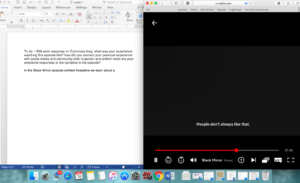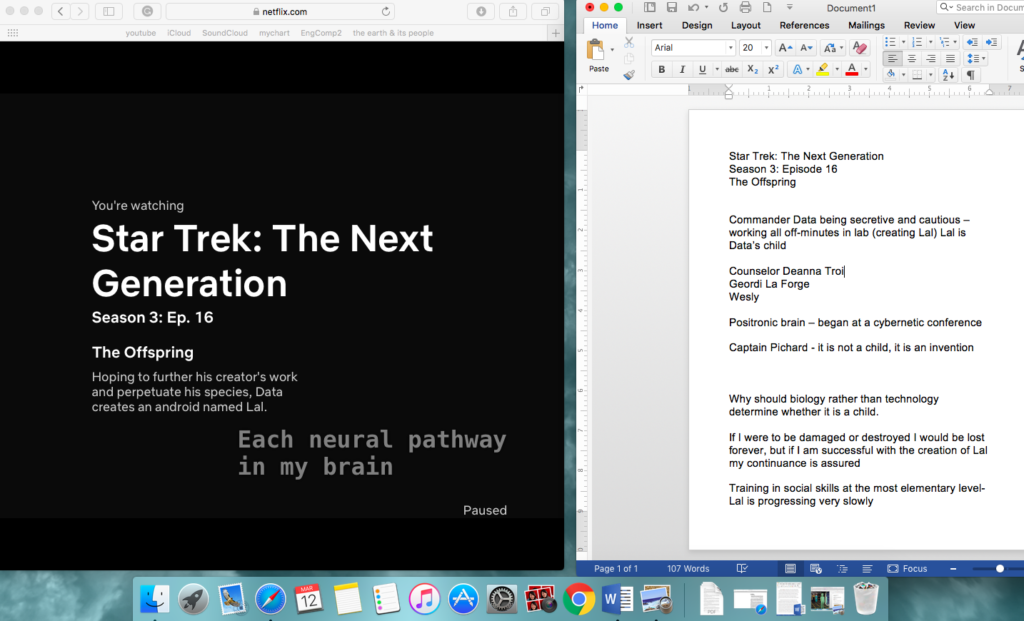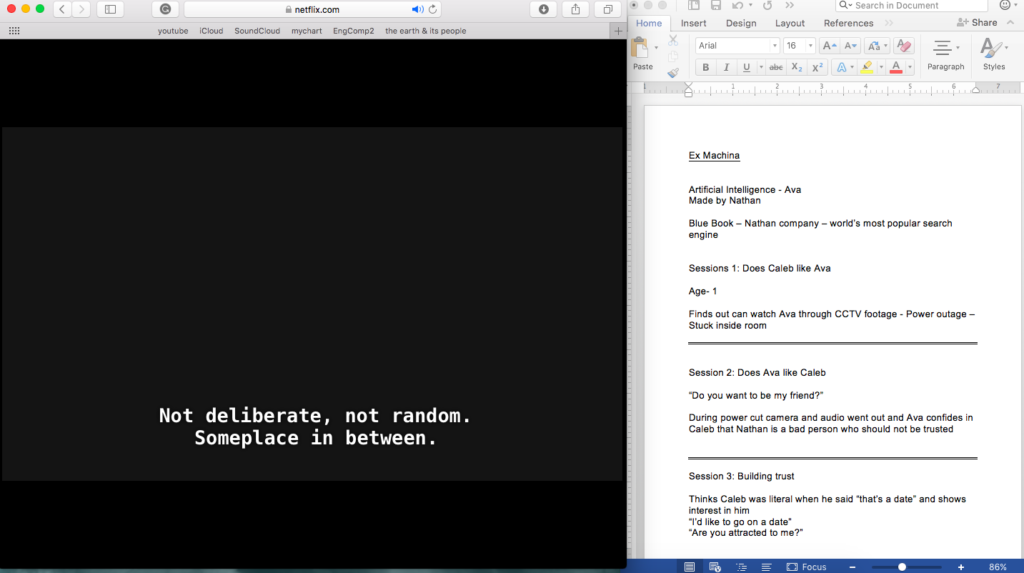Geetangalie’s Week Response #8
The Black Mirror episodes “San Junipero” and “The Entire History of You” were both a mind-bending experience. San Junipero was based around an alternate world where people have a choice of their end of life experience. When you have reached your final days you get to experience what it is like being youthful again in a place called San Junipero. Such is achieved when a device is attached to your head that brings your mental state to a false world. In the end, you get to choose to spend the rest of eternity here or move on to the afterworld. San Junipero reminded me of how we as humans try to escape the terrors of reality and live in a temporarily euphoric world. There are various ways we try to achieve this, whether it be how some people use drugs and alcohol or others go into depressive phases where they sleep excessively. We get so caught up in this alternate reality we do not want to go back actuality, this is where it becomes toxic. “The Entire History of You” depicted a society where you can implant a chip in your neck that stores all of your memory. This allows you to relive every moment you have seen, it also permits you to delete certain memories and through the technological advances analyze other conversations you have seen. While watching “The Entire History of You” I related it to the human infatuation with nostalgia. As humans, we are shaped by all the experiences we have made and constantly relive those moments in our head. Our bad habits including focusing on all the good memories we have with bad people and forgetting or neglecting the bad ones. A society like the one present in this episode would only lead to a community of people who could not move on from the past. Also, because people can always have the chance of rewatching your own memories and we lose that privacy, we would become cautious and lose the genuineness of conversations with people.







